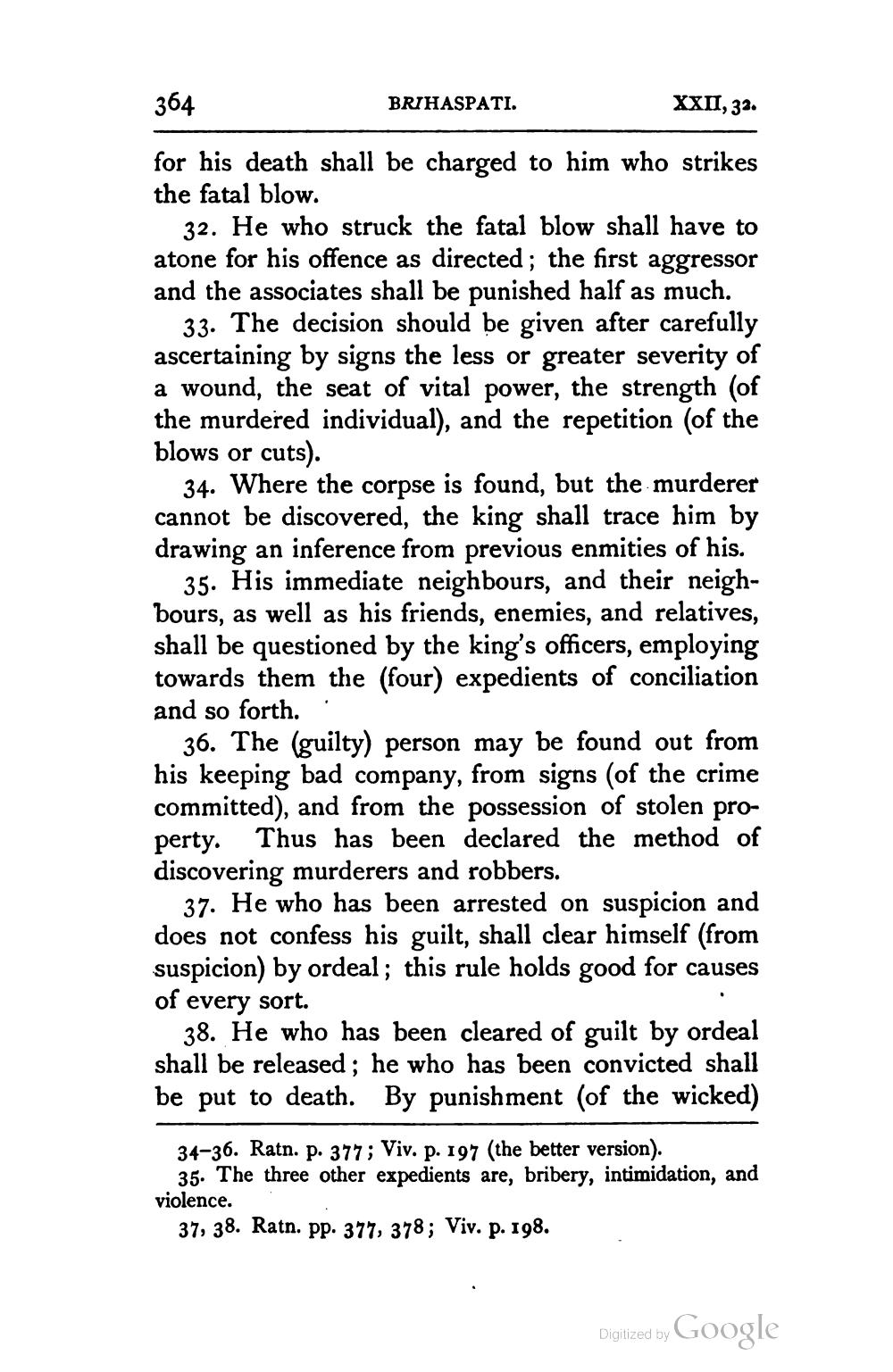________________
364
BRIHASPATI.
XXII, 33.
for his death shall be charged to him who strikes the fatal blow.
32. He who struck the fatal blow shall have to atone for his offence as directed; the first aggressor and the associates shall be punished half as much.
33. The decision should be given after carefully ascertaining by signs the less or greater severity of a wound, the seat of vital power, the strength (of the murdered individual), and the repetition (of the blows or cuts).
34. Where the corpse is found, but the murderer cannot be discovered, the king shall trace him by drawing an inference from previous enmities of his.
35. His immediate neighbours, and their neighbours, as well as his friends, enemies, and relatives, shall be questioned by the king's officers, employing towards them the (four) expedients of conciliation and so forth..
36. The (guilty) person may be found out from his keeping bad company, from signs (of the crime committed), and from the possession of stolen property. Thus has been declared the method of discovering murderers and robbers.
37. He who has been arrested on suspicion and does not confess his guilt, shall clear himself (from suspicion) by ordeal; this rule holds good for causes of every sort.
38. He who has been cleared of guilt by ordeal shall be released; he who has been convicted shall be put to death. By punishment (of the wicked)
34-36. Ratn. p. 377; Viv. p. 197 (the better version).
35. The three other expedients are, bribery, intimidation, and violence.
37, 38. Ratn. pp. 377, 378; Viv. p. 198.
Digitized by Google




